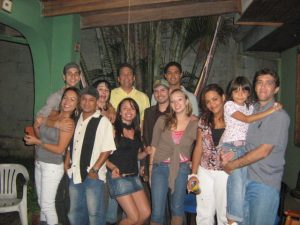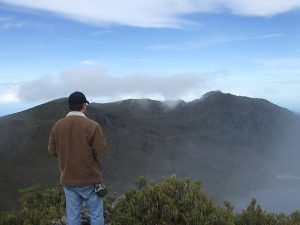The previous chapter was a warning on how not to represent your country of origin. This one on being an ambassador will be an encouragement of how to…
There are no greater ambassadors of actual impact on a host country than we expats. Many of us sort of stick out like sore thumbs. What we say and do, even how we express ourselves, is noticed and reflects, either positively or poorly, on not just us, but on everyone and thing from whence we came.
Official U.S. ambassadors are nominated by the president and confirmed by the senate. That alone places an important imprimatur upon their office. They serve as accredited diplomats who are sent by the U.S. as its official representative to a foreign country.
Now, we expats don’t have so high a duty…or, then again, perhaps we do, or, at least, should.
We are of course not sent, but voluntarily move to a foreign country for personal, not governmental, reasons. Nevertheless, we do represent, largely, the experience that citizens of your host country have regarding those of your home country…outside of what they might view on the television. And, believe me, the picture painted by the television isn’t always very pretty. For that superficial reason, you might experience some predetermined and preconceived notions about who and what you are from the moment you arrive in Costa Rica, or whatever country you choose to call home.
And if those notions are negative, it’s partly up to you to change them and create a different impression. In short, it’s up to you to use a bit of diplomacy, much in the manner of the official diplomat. The last thing the president wants to see is for his or her chosen diplomat to act in such a way as to harden negative feelings that citizens of a foreign land have regarding U.S. citizens, correct?
Now, diplomacy is the profession, activity, or skill of managing international relations, typically by a country’s representatives abroad. Like it or not, as an expat you are representing your country abroad. What locals see in you, they project to every other gringo. This connotes a responsibility on your part, don’t you think? A responsibility to represent you country well. To create the best impression possible of how citizens of the U.S. are viewed in other parts of the world.
The world, while evolving into a more connected place, is also, in many ways, becoming more and more disjointed. The lack of trust between nations and the peoples of those nations seems to be growing despite the phenomenon of globalization. In fact, this disjointed-ness might be growing because OF the phenomenon of globalization, or the backlash it is engendering.
The election of a Donald Trump and anti-globalization sentiment giving rise to national reactions, like the one we saw with Brexit, are serving to heighten tensions amongst nations and the peoples of those nations. Wars, motivated economically or religiously, and the refugees they produce, are also serving to heighten those tensions. The displacement that will occur as the result of global warming will only serve to increase this alarming trend.
But we can only do so if we exercise expat mindfulness. That is, if we are mindful of our important diplomatic role and exercise it wisely, empathetically and compassionately. We are in a unique position to exert this influence on the perceptions that foreigners have about “us.”
I believe one of the best ways to do this is to immerse yourself in the culture of your host country, while at the same time reflecting your own in the most positive manner possible. That’s not an easy task. It takes patience. It takes empathy. It takes humility. But in the end, you’ll be a better person for it, your local friends will have an increased level of respect and admiration for citizens of your country, and perhaps the world will become a little bit better because of your effort.
Please take this advice on being an ambassador seriously as you contemplate and visualize your new life as a Costa Rica expat.






